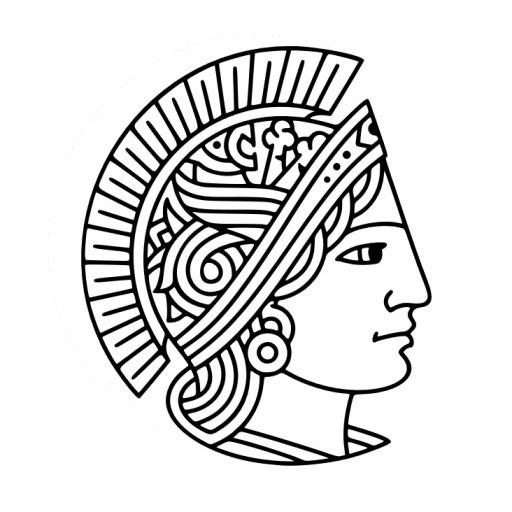Photos of university / #unifreiburg
Modules in Buenos Aires:
Module I Biological Oxidations and Bioenergetics
Module II Biochemistry and Molecular Biology
Module III Physiology, Pharmacology and Toxicology
Module IV Microbiology, Virology and Immunology
Module V Neurobiology
Module VI Cellular and Molecular Pathology
Module VII Clinical Medicine
Module VIII Molecular Oncology
Modules in Freiburg:
Module I: Molecular & Cellular Biology
Module II: Immunology and Molecular Pathology
Module III: Pharmacology & Toxicology, Molecular Cardiology, Molecular Oncology, Genetics of Disease and Cancer
Module IV: Special Knowledge for Life Sciences: Materials & Microsystems; Biostatistics, Bioethics
Module V: Laboratory Research 1 & 2
Module I Biological Oxidations and Bioenergetics
Module II Biochemistry and Molecular Biology
Module III Physiology, Pharmacology and Toxicology
Module IV Microbiology, Virology and Immunology
Module V Neurobiology
Module VI Cellular and Molecular Pathology
Module VII Clinical Medicine
Module VIII Molecular Oncology
Modules in Freiburg:
Module I: Molecular & Cellular Biology
Module II: Immunology and Molecular Pathology
Module III: Pharmacology & Toxicology, Molecular Cardiology, Molecular Oncology, Genetics of Disease and Cancer
Module IV: Special Knowledge for Life Sciences: Materials & Microsystems; Biostatistics, Bioethics
Module V: Laboratory Research 1 & 2
Educational organisation
The teaching parts in Buenos Aires (seven months) and in Freiburg (five months) are individually certified as "postgraduate courses". Since 2013, the University of Freiburg / Freiburg Academy of Continuing Education (FRAUW) presents a Diploma of Advanced Studies in Biomedical Sciences (DAS) consisting of 30 Credit Points in the European Credit Transfer System (ECTS) for the successful completion of the postgraduate course in Freiburg.The Master's thesis research (8-12 months) can be done at either institutions.
The Master's (MSc) degree is awarded by the University of Buenos Aires upon successful completion of the programme. The Master's course has been recently accredited by the National Commission for University Evaluation and Accreditation (CoNEAU) with the best possible rating: "A".
Study abroad unit(s)
Participants spend the first seven months in Buenos Aires (Argentina) and the subsequent five in Freiburg (Germany) for training modules. The Master's thesis research (8-12 months) can be done at either institution.Forms of assessment
Each module is assessed individually. Upon completion of the five months spent in Freiburg, participants present their work in a short talk which contributes to the final grade of the Diploma of Advanced Studies.For successful completion of the Master's (MSc) degree, each participant has to defend their Master's thesis in an oral presentation (30-45 minutes) in Buenos Aires in front of an examination committee consisting of professors from Buenos Aires and Freiburg.
Course objectives
The aim of this programme is to provide scientific knowledge and state-of-the-art experimental experience of current and emerging biomedical research areas with a focus on translational research and development. The IMBS offers a two-year course for the degree Master of Science (MSc) from the University of Buenos Aires.Language requirements
Applicants who are not native English speakers should demonstrate English language proficiency by acceptable results on an internationally recognised test (e.g. TOEFL, IELTS, APIEL, CPE). Participation in such a test is recommended but not mandatory as language skills can also be evaluated during the personal interviews with selected candidates. Proven higher education in English or a reasonably long stay in an English-speaking country are also acceptable.Academic requirements
Applicants must hold a Bachelor's or equivalent degree (four years) in biology, biochemistry, medicine, chemistry, or related fields. Applications are welcome even if the required degree has not been awarded by the time of application as long as it will be conferred before courses start.Want to improve your English level for admission?
Prepare for the program requirements with English Online by the British Council.
- ✔️ Flexible study schedule
- ✔️ Experienced teachers
- ✔️ Certificate upon completion
📘 Recommended for students with an IELTS level of 6.0 or below.
Enrolment fees
Application process fee of 30 EURCosts of living
Participants must make sure in good time that sufficient funds are available to finance their participation in a course of study. The average cost of living in Freiburg for one month is currently approx. 800-900 EUR. Some details:- Student accommodation costs approx. 280-450 EUR (monthly).
- Private expenses amount to around 350 EUR (monthly).
- Health insurance is available for approx. 45-90 EUR (monthly).
- Transport: A special student fare for regional transport costs approx. 89 EUR (per semester).
Funding opportunities within the university
Each year, DAAD scholarships ("Sur-Place" or "Deutschlandstipendium") are available. Please apply directly to the IMBS programme for a scholarship. Selection will be carried out by the programme committee.Arrival support
Freiburg:Students will be picked up on arrival day. During the introduction week, the programme coordinator will assist with all necessary administrative tasks (e.g. registration, visa extension, bank account, etc.). There will also be an intercultural training.
Services and support for international students
In addition to the IMBS service and support, students can profit of various services of the University of Freiburg:The International Office: http://www.studium.uni-freiburg.de/international-en/international-en?set_language=en
The "International Club", coordinated by the Studentenwerk (students' social services), offers a great variety of events, trips, and services for international students in cooperation with the International Office: http://www.swfr.de/en/internationales/
Furthermore, the UNIKOS team, a group of international students who have been studying at Freiburg University for some time, give practical advice and can be approached for help in several languages:
http://www.studium.uni-freiburg.de/container-en/team-international-en/io-en/unikos-en









